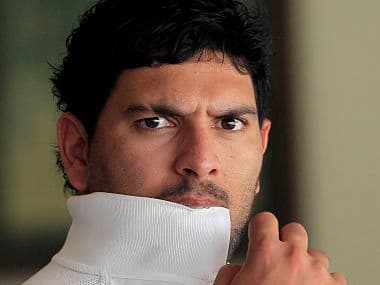A non-resident sportsperson performing in India and getting paid for it has it easy— he just has to pay 10 percent income tax. Section 115BBA in fact is gushing in its concern for foreign sportspersons—the concessional rate of tax extends to payments gotten for advertisements done as a celebrity model as well for penning articles and appearing as an expert in television channels. One wonders if this concession is given to only to those still still playing or those who have already hung their boots up but offer ball-to-ball commentary on television channels. But that is not the main point here. [caption id=“attachment_2108771” align=“alignleft” width=“380”]  Representational image. AP image[/caption] Why do we go overboard in our tax hospitality to foreign sportspersons? The ostensible reason is to attract the best talent so that a nation lagging behind in sports gets to watch the best in the field and learn. But then the best simply passes India by, be it football or tennis given the small prize money, except perhaps in the case of cricket. The bottom line is Yuvraj Singh would have to cough up 30 percent of his fee of Rs 16 crore that he would get from Delhi Daredevils, whereas foreign players in the same IPL would be let off with a comparative slap on their wrists. Australians would specially be laughing up their sleeves at the Indian Parliament’s generosity that borders on naiveté. The Indo-Australian DTAA says Indian players would be taxed in Australia at the applicable rates. The rates aren’t low, with the maximum marginal rate being 45 percent on income exceeding Australian dollar 180,000. The tax-free limit is $ 18,200, with income in excess of this amount attracting 19 percent tax till $ 37,000. Income in excess of $37,000 attracts 32.5 percent till $80,000 and income in excess of $80,000 attracting a 37 percent tax till 180,000. The Supreme Court of India took pity on Indian cricketers and urged the Indian government in 2007 to petition the Australian government in Zee TV’s case so that BCCI could put itself between the ambitious Australian tax system and the poor Indian players. The idea was BCCI being an institution would be let off lightly by the Australian government. Why do we genuflect before the foreign sportspersons given the fact Indian cricketers would get and bring home a considerably pared down income thanks to the steeply high rates of personal income tax in Australia? That they can afford to take the burden in their stride is besides the point. The icing on the cake for foreign sportspersons is they are pampered all the way even if they earn through entirely extraneous sources such as celebrity modelling and commentary. Are we not showing undeserving generosity to foreign sportspersons? It is time section 115BBA is revisited and rewritten. To be sure, sports, especially those other than cricket, need encouragement. But this is hardly the way to go about it. The largesse given to foreign sportspersons can be more productively shifted to corporates sponsoring sports tournaments, coaching academies and training abroad.
Why do we go overboard in our tax hospitality to foreign sportspersons? The ostensible reason is to attract the best talent so that a nation lagging behind in sports gets to watch the best in the field and learn.
Advertisement
End of Article


)

)
)
)
)
)
)
)
)



